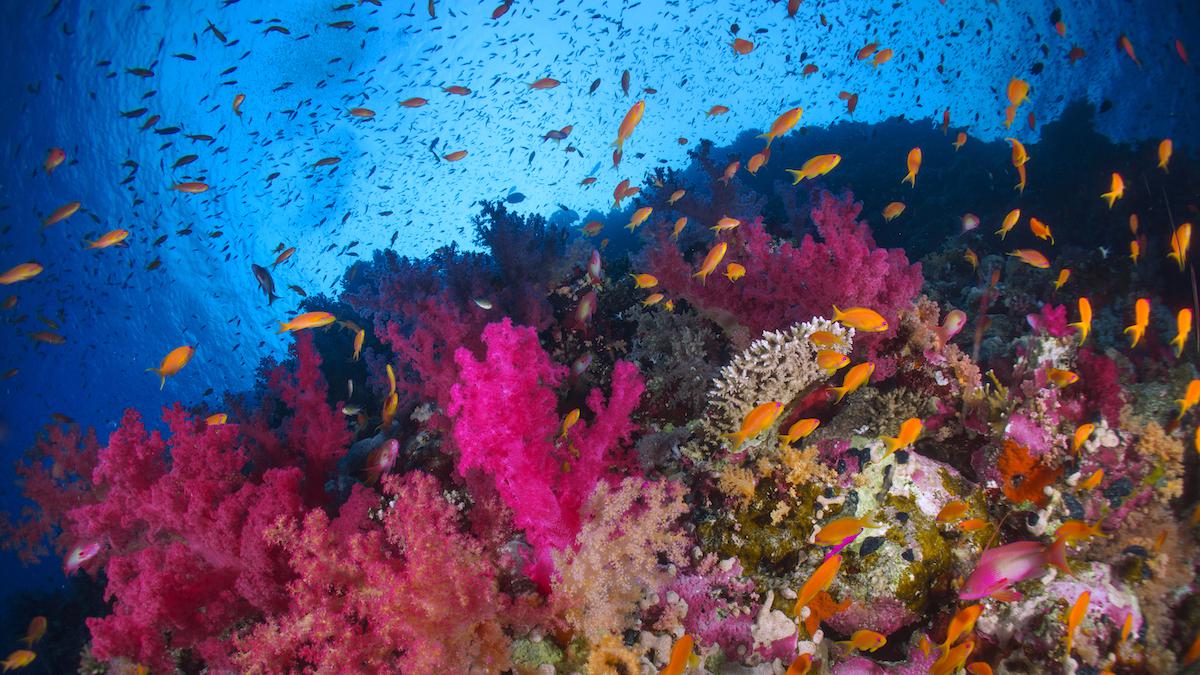
Marine Protected Areas Are Less Effective Than We Thought — Illegal Fishing Is to Blame

Marine Protected Areas are designed to relieve fishing pressures in highly productive and biodiverse areas. Cinzia Osele Bismarck / Ocean Image Bank
Are Marine Protected Areas (MPAs) effective? Yes, but not as well as we thought, a new study finds.
Globally, illegal, unreported and unregulated (IUU) fishing is known as one of the biggest threats to the health and future of the oceans. MPAs attempt to protect enough critical marine habitat to ensure survival of ocean life despite this. Unfortunately, illegal fishers intentionally target reserves because they know that fish are more abundant within those areas, Pew Charitable Trusts reported. Now, this study shows how detrimental illegal fishing is even to nearby protected areas, because of an “edge effect.”
Recently, IUU fishing has taken the global spotlight. To shed more light and galvanize collaborative solutions, the United Nations declared June 5 the International Day for the Fight Against Illegal, Unreported and Unregulated Fishing.
For decades, marine policies have advocated for MPAs as a critical tool in the fight against illegal fishing, citing the “spillover effect” as the crucial benefit. The idea is that protecting certain areas from fishing and development will allow fish and invertebrate stocks to recover and migrate out (or spillover) to unprotected areas where fishing is allowed. Thus, overall fish populations should increase within MPAs and immediately outside.
For the most part, MPAs work. A new study, however, shows that fishing right outside of protected areas similarly has a negative spillover effect that moves backwards into MPAs. Human pressures have a detrimental effect on marine wildlife living close to the edges of such regions. Illegal fishing and overfishing are the main human actions causing this reverse spillover, the study showed. It was published in the journal Nature Ecology & Evolution.
Because of this newfound effect, the study estimated that over half of the world’s marine protected areas are failing to protect ocean biodiversity, The Times of Israel reported. The study, conducted by Tel Aviv University hopes to bolster the effectiveness of MPAs around the world by suggesting ways to buffer them from negative human impacts.
The study came to its conclusions by surveying the amount of fish in the “in between” areas of MPAs to measure their overall effectiveness. Thousands of studies have proven the efficacy of MPAs by sampling and comparing “inside” and “outside” fish populations. Little research has been done in the areas in between, however, reported The Times of Israel. The researchers compared estimates of fish and marine invertebrate populations from 27 MPAs from around the globe in which fishing is banned. They found that “there is a prominent and consistent edge effect that extends approximately 1 kilometer (0.62 miles) within the MPA, in which [fish] population sizes… are 60 percent smaller than those in the core area.” Again, this is mainly because of fishing. What that means, alarmingly, is that “global effectiveness of existing no-take MPAs is far less than previously thought,” especially for smaller MPAs, the study said.
Researchers found that protected areas smaller than 10 square kilometers account for 64% of all ‘no-take’ MPAs in the world, where fishing is totally banned. Some 40% of MPAs are just one square kilometer, which means that the entire area probably experiences this edge effect, they added.
Importantly, no edge effects were found in MPAs which had no-fishing buffer zones created around them. Edge effects were also less pronounced even without buffer zones as long as bans against fishing were enforced, the study found.
“MPAs with buffer zones did not display edge effects, suggesting that extending no-take areas beyond the target habitats and managing fishing activities around MPA borders are critical for boosting MPA performance,” the researchers concluded.
They told the Times of Israel, “These findings are encouraging as they signify that by putting buffer zones in place, managing fishing activity around MPAs and improving enforcement, we can increase the effectiveness of the existing MPAs and most probably also increase the benefits they can provide through fish spillover.”
- Sea Shepherd and Peruvian Government Intercept Illegal Fishing ...
- Is Your Fish Fake? Report Shows Rampant Global Seafood Fraud ...
- Illegal Fishing Surged in Philippines During COVID-19 Lockdown ...
- Senate Bans Shark Fin Trade and Addresses Forced Labor and ...
- Oceana Mission to Mexico Uncovers Invasive Species and Coral Diseases on Pristine Reefs - EcoWatch

 233k
233k  41k
41k  Subscribe
Subscribe 